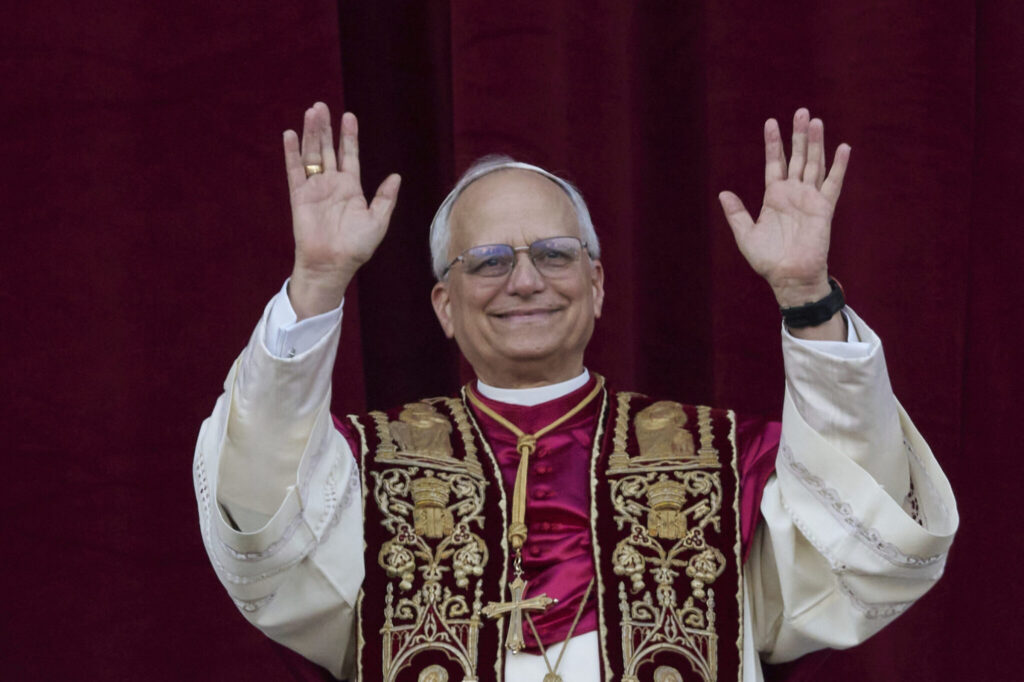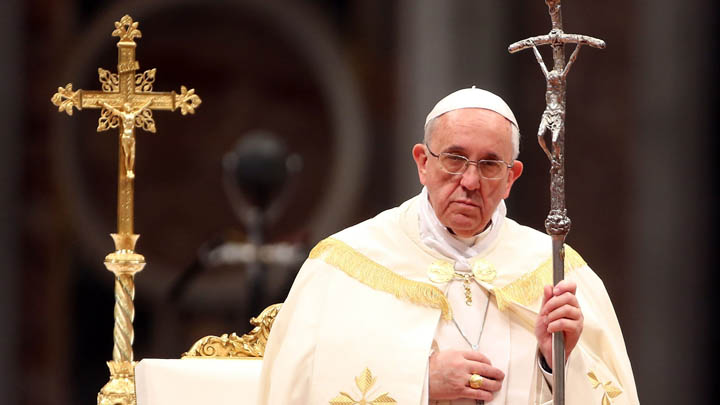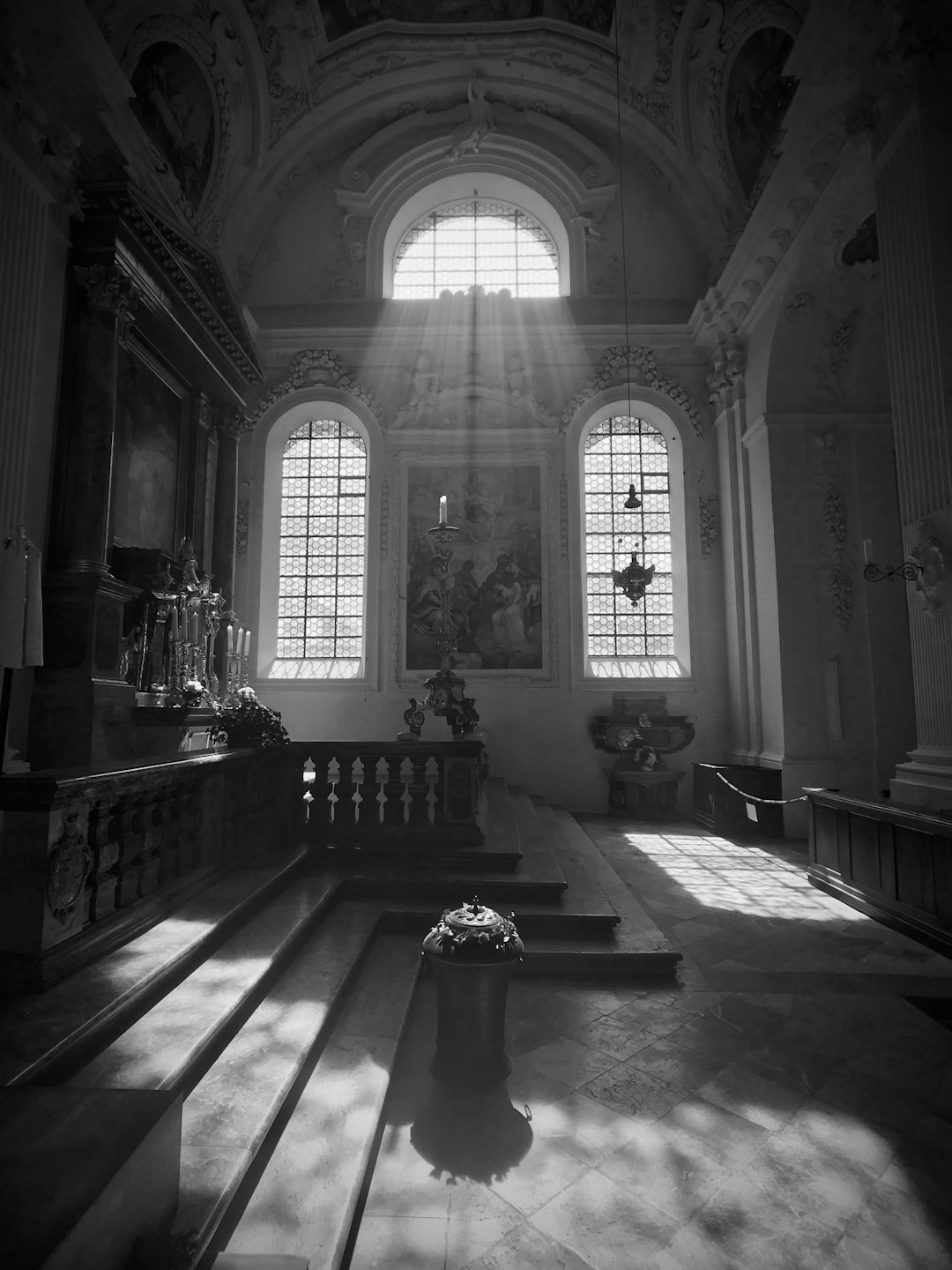A New Pope and a New Dawn
Introduction
What do traditionalists see when they look at the papacy of Pope Francis? The mischievous answer is: red. The real answer is somewhat more complicated and involved. At least it should be. There are some Catholics who believe that traditionalists are just cantankerous old men who are at war with the world because they are stuck in the past and cannot accept that the world has moved on and left them behind. This caricature is popular because it is easy. The simplest way of dealing with something difficult is to dismiss it as irrelevant. However, this is an easier thing to say than it is to prove. The problem with “irrelevant” in the Church is that it occasionally turns out to be prophetic. Not everything that is important to an age is recognised by that age. It is why prophecy in the Church is so difficult to define and even more difficult to recognise.
One of the key questions that we have been wrestling with at Oriens is: what do we make of the Francis papacy? How can we best understand it so that we can document it for our own instruction and for the benefit of those who come after us? This question is even more pressing now given the election of Pope Leo. Like every Catholic of good will, we want to be both just and honest. There is no point to commentary that allows itself to be swept away by its own grievances and hurt feelings. An angry assessment is just that- anger. And neither can we allow ourselves to be caught up in this modern-day ultramontanism, which is just self-interest masquerading as fidelity: “I will never say anything bad about the Pope (because my own interests depend on it).” There is no place for the piety of the moral coward.

The need to pay attention
The question still remains: what do we see in the daylight now the sun has set on the Francis papacy? Like most Catholics who are paying attention to what is happening and not just to the headlines, we are aggrieved by the cruelty of Tradtionis Custodes, the ambiguity of Amoris Laetitia and the delinquency of Fiducia Supplicans. On the other hand, we have been inspired by his intransigence against abortion and moved by his defence of the weak in such cases like Charlie Gard and Alfie Evans.[1] But is this how one should evaluate a papacy? A good column and a bad column and then get a total at the end? A kind of ledger of naughty versus nice, something that Santa Claus does in secular Christmas music. Many Catholics believe something similar about their own judgment day- that instead of keys, Peter keeps a scale; that judgement is a kind of Weight Watchers for the well behaved. I am not sure that fits with Scripture’s description of our final judgement or how Tradition has interpreted it. I know this is not what traditionalists see; and I am convinced this is not what we should hand on to posterity.
A thrice rendered judgement
A papacy is judged three times. The first is also the final judgement, the one given by Almighty God. About that there can be no doubt; and from this there can be no demurring. It will be both terrible and glorious. Just how these two extremes will coalesce in one judgment remains a mystery to be revealed when we each appear before the Throne of the Lord- it is God’s exclusive work. A second judgment is given by posterity- the people who must endure the consequences over time of that papacy- both for ill and for good. That is the judgment of centuries. The third judgement is given by those who experienced the papacy directly. Those who were first affected, if not the most affected by whatever decisions were made at the time. This is our task today.
The judgement of those who experience a papacy directly, is coloured by emotion. Whether we like it or not, what we think of a papacy is influenced by what we think of the Pope. And vice versa. That is a necessary consequence of being human. However, we must try and be objective. The first step to being honest and objective, is to recognise that we are not always so; and are so, only when we impose a certain discipline upon ourselves. I know that many traditionalists (and many others too) feel aggrieved by what has happened during the Francis papacy. And this grievance is not without foundation. But we cannot allow how we feel to be the only thing we hand on to those who come after us. We must be better than how we have been treated. Holiness consists in both rising above and lifting up what is around us.
An admission
I am going to try and answer these questions from the point of view of traditionalism. I am not speaking for traditionalism- I am merely speaking as one of their number. And the first thing to do is to follow my own prescript: I do feel most aggrieved by many aspects of this papacy. I share all the dismay at what is irresponsibly termed- a more open form of Catholicism. I share all the concern over the ambiguity where doctrine has been honoured more in the breach than in the observance. I am also a priest whose bishop was Pope Francis. And his diocese felt his impact more than any other. I know many of the people involved personally- some of them are my friends. I am not entirely objective. But I am earnest in my attempt to be balanced and sincere. So, where do we begin?
The Francis effect
In order to be rigorous in our appraisal, let us begin with a common and fuzzy refrain: the Francis effect. The Francis effect is as clear as his papacy was conventional. Which is to say- not at all. However, there is a common element to it that was shared by both his supporters and his critics- that whatever the content of the Francis Effect may be, the ‘effect’ of the Francis effect is always the same: his desire to change the Church. At least on this both sides can agree. And both sides agree that Francis wanted the Church to change direction. Where we disagree vehemently is: towards what?

The ambiguity in the Francis effect is about Francis: where did ‘Francis’ stand in the Francis effect? This must be addressed if we are to be thorough. For the lack of clarity is what seems to be most ‘Francs’ in the Francis effect. The Lord was very clear when He spoke to St Peter: And the Lord said, Simon, Simon, behold, Satan has desired to have you, that he may sift you as wheat: But I have prayed for you, that your faith fail not: and when you have returned, strengthen your brethren (Luke 22: 31-32). Ambiguity is not strength. I cannot lead my business and be unclear about what I want my employees to do. I cannot lead a government and be imprecise about what I want for the nation. I cannot fulfill the will of God as Pope and be unclear as to what I believe about the doctrines and identity of the Church. Ambiguity is not a clue to the problem- it is the problem.
A new spirit but the same wrong direction
The Francis effect is the logical successor to the spirit of the Council. That phrase is used less today than it was a decade ago because the Francis effect has taken its place: the Francis Effect is a kind of aggiornamento to the spirit of the Council. Both are in equal measure a desire for change with no final form- hence their ambiguity. The Francis effect is a cry for ‘change’ with no detail- which by nature means, because it has no specific end, it necessarily becomes about the person who wants the change. Whenever the content of ‘change’ is unclear, the focus of attention is on the one wanting the change, not on the change that one is wanting. Whenever there is a lack of detail you can be certain that the desire is for control. If I want something to happen but I do not from the outset specify what I want to happen- then all you can do is refer to me. ‘Change’ without specifics creates confusion that can be leveraged into manipulation and power; something that the purveyors of the Francis effect have used ad infinitum.
The effect of such a mechanism distorts Catholic moral life over time. Not only does change without detail deprive the end result of any means for measuring its success- if I don’t specify my target, then anything I ‘hit’ becomes the de facto target; it forces those affected by the change to conform to a new standard. No longer an objective standard of behaviour in order to reach a stated goal- but a subjective one of having to constantly respond to the person making the ‘change’. If I am in charge of a change that impacts you, but you are prevented from knowing what that change is; then you are not only under my authority- you are at my whim. This changes people’s behaviour and forces them into new habits- largely to survive. The Francis effect is where the spirit of the council has blown us- upon the rocks of disordered practise. What has been emerging ever since the spirit of the 60’s is a new and rival tradition in the Church.
A false tradition
The Francis effect is the expression of a false tradition in the Church; where we are not bound by any wisdom or authority over us, rather we are bound only by ‘what could be’. As Fr Thomas Rosica has “quoted”: the Church is now “openly ruled by an individual rather than by the authority of Scripture alone or even its own dictates of tradition plus Scripture.” Francis “breaks Catholic traditions whenever he wants” because he is “free from disordered attachments”. Fr Rosica said that, as a Jesuit, Pope Francis is guided by the principle of “discernment” which at times results in “freeing him from the confinement of doing something in a certain way because it was ever thus”.[2] There is no more succinct summary of what the Francis Effect actually is. And there is no more obvious declaration of what this synthetic tradition in the church now looks like.
This is not the tradition of received wisdom- it is the tradition of imposed whimsy. A Living Tradition is a moral response to truth. It is a habit that resides at the heart of Christianity; of how the Church responds to each moment of history in a way that is consistent with the Truth that has been revealed and the Wisdom that has been received. The Francis effect is a reconditioning of our moral response to received truth- that we no longer need to conform our behaviour to the truth as it has been revealed, rather we interpret the truth in the light of best practice. But ‘best practice’ defined as the best practice that I can manage. ‘Practice’, or perhaps better defined as cultivated ambivalence, trumps doctrine. My own subjective response is what guides truth- and not the other way around. No longer am I required to make some sacrifice; to actually try and perhaps fail- now failing to try has been lifted up to the realm of virtue. The soft selling of this idea is done under the misleading title of the ‘pastoral approach’. A kind of pre-emptive mercy that is the inversion of actual mercy. An authentic pastoral approach means lifting someone up to higher ground or picking him up when he falls. A pastoral approach that allows someone to aim further downwards and praise him for doing so is not mercy- it doesn’t even make any sense. In this false tradition, subjective and individual ‘lived experience’ have more weight than revealed truth.
The thing we find most objectionable in this papacy is the thing we find most objectionable about the direction of the church: it is living into a fabricated tradition. Where doctrine is ultimately conditioned by the experience of the individual and not where the individual is obliged to live according to the dictates of truth that is both clear and well defined.
A new moral authority
But this kind of new tradition requires a new kind of moral authority. And it must never be questioned. In terms of the moral authority of the Francis effect, this is based on the Pope’s love of the poor and simplicity of life. Love for the poor is one of those oft repeated assumptions that no one ever feels compelled to prove- it carries with it a new kind of infallibility. I am not doubting Pope Francis’s love for the poor- nothing could be further from the truth. What I am seriously questioning is the sincerity of those who leverage the poor for their own desires for change. Which Pope in our living memory has ever hated or been indifferent to the poor? Which Pope has turned his back on the plight of the suffering? Then, if this is the case, why is it a means of justification for a standard of change with no measure? Why is it a measure of anything particular at all- if every Pope has practiced it? We may as well be referring to the pope’s white cassock.
A second observation must also be made. Much has been said of the Pope’s simplicity of life, evidenced by his decision to reside in St Martha’s instead of the Apostolic Palace. I must repeat- I am not doubting the seriousness of the Pope’s commitment to a simple life. I take that as a given. What I am here objecting to, is that the choice of St Martha’s over the Apostolic Palace is not evidence for it. And the media, clerics and the world need to stop using it as evidence. For it is not. If the Apostolic Palace were called the “North Wing” no one would think it would be less humble to live there as opposed to anywhere else. Appearances may mater to the press- they make no difference to genuine virtue.
However, the exaltedness of the title- ‘Apostolic Palace- is somewhat misleading. Just to add some credibility to my observation, and without alluding to anything else- I have experienced both places. I have been blessed to have had many meals with priest friends who have resided in St Martha’s; and I had the rare blessing of having lunch with St John Paul II in the Apostolic Palace. And let me tell you in no uncertain terms- God bless the nuns in the Apostolic Palace- but I know where I would rather eat my dinner, if I had the choice. It is not even close! Pope Francis’s decision to reside at St Martha’s is perhaps more a sign of knowing where a decent plate of pasta was to be found as opposed to any declaration of his superior humility to the more than 50 popes who lived in the “North Wing”. Either way, love for the poor and simplicity of life can no longer be wielded as a sword against criticism and a shield in defense of an agenda. Let them be what they always were- the sine qua non of Christian life.
An old problem and a new pope
There is an aspect to all of this which is dreadfully uncomfortable. Any criticism of the pope brings the papacy into question in some way or other. Any time the sons of the Church need to correct their father, it does damage to the father’s authority and office. That fact can then be used by those who are less scrupulous to justify their own agenda or even their own downright disregard. If Catholics are critical of the Pope- why shouldn’t Protestants, Evangelicals and the secular? The refrain- “we told you so”- starts to ring loud. In an ideal world, we would whisper all this in private, under the cover darkness, walking backwards as the sons of noah (cf Gen 9:23). But that is only possible when the whisper can be heard and the darkness does not hide the damage but rather aids the work of genuine repentance. Discreteness is an ally of repentance, but it can also be a friend to corruption. Much depends on what is heard when certain truths are whispered. But when they are ignored- we must drag the problem into the daylight.

However, even though we risk a certain amount of damage in our criticism, we risk outright carnage by our silence. More damage is done by the error than its denunciation. But damage is done nonetheless. And this weighs on a catholic heart. Whatever the case, we don’t want to make the task of Pope Leo more difficult, rather we want to help him carry the burden. And the first part of that effort is to make it clear what lies at the heart of what has gone wrong.
Conclusion
The temptation to clear our throats and declare our fidelity before we speak the truth, becomes a chance to lose our nerve and never speak it. The homilies and press reports are of one voice- be positive at all costs- to the point of losing your judgement about right and wrong. We don’t need pope Leo to make this a personal attack on pope Francis. One pope against another is not what we need. But we do need a pope who can correct the errors of a papacy without making them about his predecessor. This is a supernatural task- to play the ball and not the man. But the ball must be played- and the errors must be made manifest and the work of correction and restoration must begin in earnest. And what lies at the heart of this work, is that we must undo the false tradition into which we are living, where the virtues demanded by revealed truth are now subordinated to the whims and vagaries of ‘lived experience’.
[1] Both these lists are not exhaustive- they are merely illustrative of the issues.
[2] https://thecatholicherald.com/vatican-advisor-pope-breaks-catholic-traditions-whenever-he-wants/

